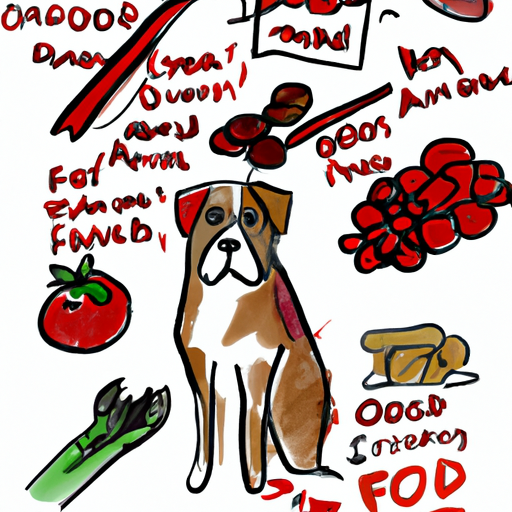As a loving caregiver to your furry friend, you might be tempted to share your delicious meal with them. While this act is born out of love, it’s essential to know that not all human foods are safe for dogs. In fact, some may be toxic and could lead to serious health complications. In this guide, we will highlight eight key foods that dogs should avoid.
1. Chocolate
Chocolate is a well-known toxin for dogs. It contains theobromine, a substance that dogs can’t metabolize effectively.
- Dark chocolate and unsweetened baking chocolate carry the highest levels of theobromine.
- Symptoms of chocolate poisoning in dogs include vomiting, diarrhea, rapid breathing, and seizures.
2. Grapes and Raisins
Grapes and raisins can cause acute kidney failure in dogs. Even a small amount can make a dog sick.
- Symptoms include abdominal pain, loss of appetite, vomiting, and diarrhea.
- There is no known safe quantity of grapes for dogs, so it’s best to avoid them entirely.
3. Onions and Garlic
Onions, garlic, and other plants in the Allium family can damage a dog’s red blood cells.
- Symptoms of Allium toxicity can take a few days to appear and may include lethargy, pale gums, elevated heart rate, and collapse.
- Foods with onion or garlic powder are also dangerous.
4. Avocado
Avocado contains a toxin called persin, which can cause vomiting and diarrhea in dogs.
- The largest concentration of persin is in the avocado’s leaves and pit, but the fruit itself also contains this toxin.
5. Alcohol
Alcohol has the same effect on a dog’s liver and brain that it has on humans. However, it takes a lot less to harm them.
- Symptoms include vomiting, diarrhea, decreased coordination, central nervous system depression, difficulty breathing, and even death.
6. Coffee and Caffeine
Like chocolate, coffee contains methylxanthines that can cause vomiting and diarrhea, panting, excessive thirst, abnormal heart rhythm, seizures, and even death.
7. Xylitol
Xylitol is a sugar substitute often found in sugar-free foods. It can lead to a rapid drop in a dog’s blood sugar and liver failure.
- Symptoms include vomiting, loss of coordination, and seizures.
- They can develop within 15-30 minutes of ingestion.
8. Dairy Products
Dogs do not have significant amounts of lactase, the enzyme that breaks down lactose in milk. As a result, dairy can cause digestive problems.
| Food | Symptoms of Ingestion |
|---|---|
| Chocolate | Vomiting, diarrhea, rapid breathing, seizures |
| Grapes and Raisins | Abdominal pain, loss of appetite, vomiting |
| Onions and Garlic | Lethargy, pale gums, elevated heart rate |
| Avocado | Vomiting, diarrhea |
| Alcohol | Vomiting, diarrhea, decreased coordination |
| Coffee and Caffeine | Vomiting, diarrhea, panting, seizures, death |
| Xylitol | Vomiting, loss of coordination, seizures |
| Dairy Products | Diarrhea, gas, and other digestive problems |
Frequently Asked Questions
Can dogs eat any type of chocolate safely?
No, all types of chocolate are toxic to dogs and should be avoided.
Are there any safe amounts of grapes for dogs?
There is no known safe quantity of grapes for dogs, so it’s best to avoid them entirely.
Can dogs eat foods cooked with onion or garlic?
Foods cooked with onion or garlic are also harmful to dogs and should be avoided.
Can dogs have any type of alcohol in small amounts?
No, alcohol is extremely dangerous for dogs even in small quantities.
Are any dairy products safe for dogs to eat?
Some dogs can tolerate small amounts of cheese or yogurt, but generally, dairy products should be avoided.
Remember, when in doubt about a food, it’s always safer to avoid it. And if you suspect your dog has ingested a toxic food, contact your vet immediately.



